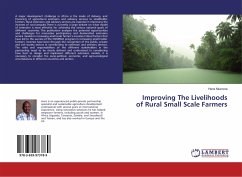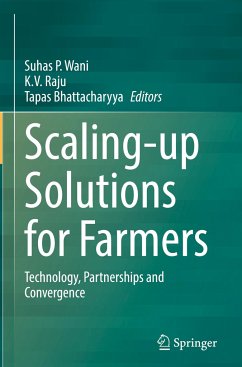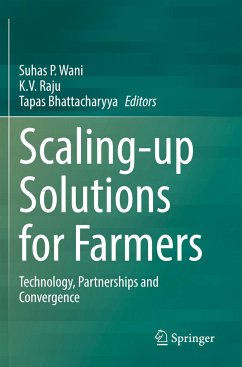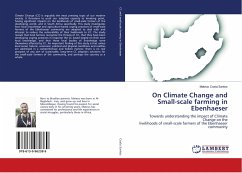
Improving The Livelihoods of Rural Small Scale Farmers
Versandkostenfrei!
Versandfertig in 6-10 Tagen
19,99 €
inkl. MwSt.

PAYBACK Punkte
10 °P sammeln!
A major development challenge in Africa is the mode of delivery, and financing of agricultural extension and advisory services to smallholder farmers. Rural extension and advisory services are essential in improving the incomes of rural peoples.There is currently a large debate on what model of extension is most effective for achieving the various national goals of different countries. This publication analyzes the potential opportunities and challenges for innovative participatory and demand-led extension service models in increasing small scale farmer's incomes.Critical factors that have led...
A major development challenge in Africa is the mode of delivery, and financing of agricultural extension and advisory services to smallholder farmers. Rural extension and advisory services are essential in improving the incomes of rural peoples.There is currently a large debate on what model of extension is most effective for achieving the various national goals of different countries. This publication analyzes the potential opportunities and challenges for innovative participatory and demand-led extension service models in increasing small scale farmer's incomes.Critical factors that have led to the success of the COMPACI program in increasing small holder farmers' incomes have been through the recognition of the public, private and civil society sectors in contributing to extension and advisory services. The roles and responsibilities of the different stakeholders in the partnership need to be clearly defined and understood. In considering how best to design and implement different extension models, it is necessary to consider the socio-political, economic, and agro-ecological circumstances in different countries and sectors.












